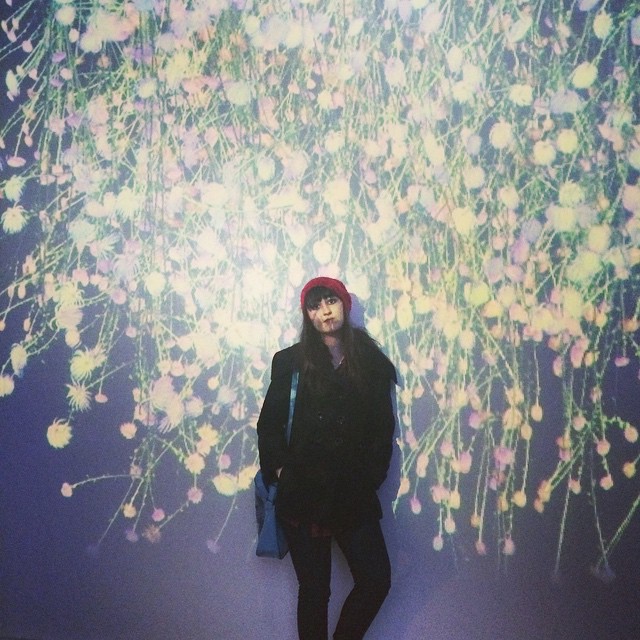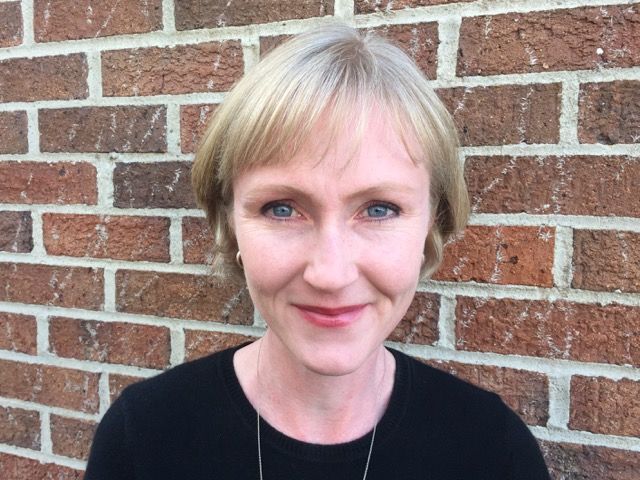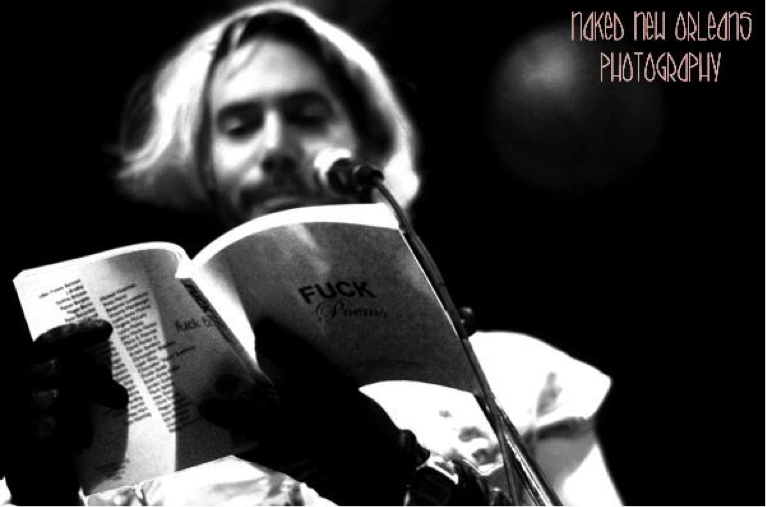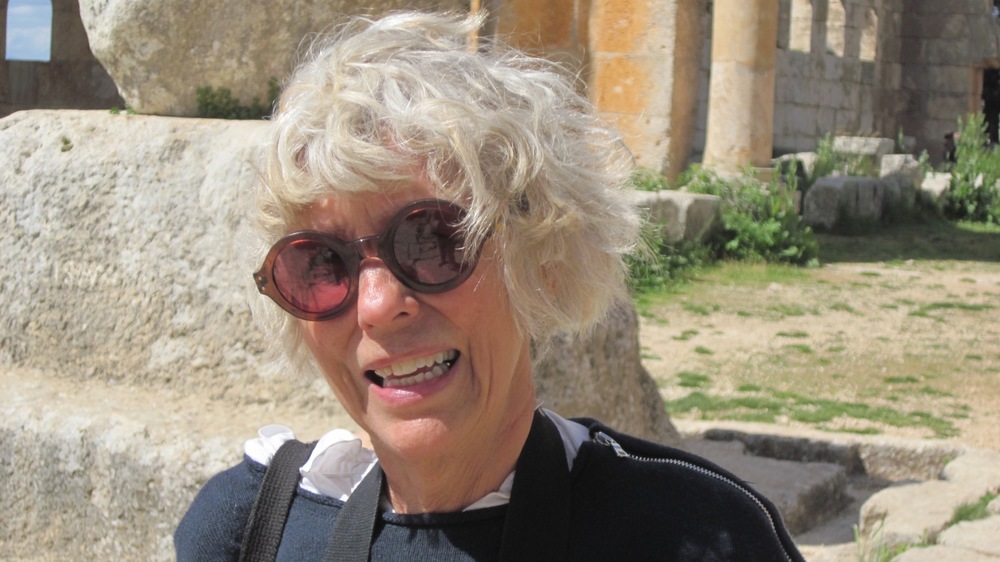Issue 3
On Americana
Isn't it always a good time to question America? Who are we, and what are we all about? And on the flip side, who are we not, and what aren't we about? Especially now, given the charged political landscape we inhabit, the endless election cycle that churns from within our state-supported laboratories — or lavatories — of American democracy. It seems a good time, once again, to discuss what's good, what's not so, how we know the difference, and who gets to decide.
40 years ago, writing about religion, Émile Durkheim said, "A society is not simply constituted by a mass of individuals who compose it, by the territory they occupy, by the things they use and the actions they perform, but above all by the idea it has about itself." Today's American literature continues to lie awake, wrestling with this idea about itself. Word by word, literary works reflect — and refract — our various hopes and anxieties, revealing both nightmares and dreamscapes that stretch out before us, with the horizon forever-moving, just beyond our grasp.
Welcome to Issue #3
And so, in that same spirit of endless struggle, this issue is all about Americana, those everyday things that we imbue with the power to represent us. And by connecting things with their ideas (and by remembering that there are "no ideas but in things"), this issue also traces the overarching concept of the American sublime: What out there (or within us) constitutes our greatest hopes and fears? Are those hopes and fears, in fact, the same imagined thing, just seen differently, depending on whoever "we" are from moment to moment? Where does the line get drawn? Who gets let into our world? What gets excluded? Why? And when we know we're wrong, what do we do about it?
To be clear, this issue doesn't contain answers to these questions. Rather, it's only through such timeless questioning that literature and art continue to be an engine of our own enlightenment — if not a force for good then at least a forum for discussing what is.
Like America, this issue has many ports of entry. Choose whichever you like: there's poetry, short stories, an interview, and art, all to take in. If you want my take, I'd say start with the visual art by Hiroyuki Nakamura. Whether you begin by viewing the paintings themselves or by reading my commentary on his paintings and then viewing the digital exhibit, that's entirely up to you. As you'll come to discover, Hiro's art has been a central inspiration to this issue's theme.
Likewise, "What Holds Together", a poem by Lynn Potts, is a great place to start. It begins by cracking open a core American question: "What holds together / a country a land".... And already by the second line, we know something's amiss: A comma is missing, the very punctuation that would simultaneously separate and join the two nouns (a country, a land) in the same list. The omission is clearly no accident: The poet's one-line phrase is definitively singular, "a country a land", although our brains have been trained to see them as separate things. Here the poem presents a transparent overlap, or overlay, with a country and a land. It's up to us to figure out why and how or if these things are different, but also points us back to the original question: "What holds [them] together". Can we have it both ways? Together and apart? If so, what balance must be struck? Or so our questioning might go. And we're only two lines into the poem.
Along these lines, writer and activist MK Chavez would also have us consider "All that is not yours" [i.e., not ours, or more specifically, not mine]. Her two poems, "The Faculties of Sense" and "The Golden Ratio", in different ways, are a crucial call to question: Where are our boundaries? What lines should be crossed, and what shouldn't we take in? How do we know? If we do find a boundary, what do we do about it? Push past it, in order to know more? Feel more? At what point does sympathy become smothering, and empathy become erasure? When does identification, America's mutant power, lead to the tragic reduction of another person's situation or the assimilation of a culture's unique qualities? What can't — or what shouldn't — the idea of our country encompass? "There is much to discuss / between circumstance and circumference", Chavez reminds us in her poems.
“The ideal society does not stand outside the real society: it is part of it. Far from being torn between two opposite poles, we cannot be part of the one without being part of the other. A society is not simply constituted by a mass of individuals who compose it, by the territory they occupy, by the things they use and the actions they perform, but above all by the idea it has about itself.”
Our discussion continues with the poem "fire escape hymnal" by Nicolette Daskalakis, where "Our yard sale record collection / sings the B side / of Star Spangled Banner". I find this stanza of the poem arresting: What would the "B side" of the Start Spangled Banner even sound like? Could it include "America the Beautiful", a more secular kind of psalm, whose popularity often surpasses our official national anthem? Or would the "B side" hold a song yet unknown or unknowable? For me, this poem echoes the democratic vision of William Carlos Williams, who in the 20th century looked out upon a different America than most of his contemporaries. Similarly, Nicollette's poem for the 21st century also moves us to wonder about the otherness all around us, and to pay closer attention as we move about one another.
Of course, we don't always listen. Or we choose to lie or forget about what we've heard or seen. What happens to us then? When we choose to walk away from others and what they're saying? (Now we're talking!) For this part of the discussion, or absence of discussion, we turn to "Human Flaw with History" by Beth Woodcome Platow, a poem that strikes-through its every last word. Each time I read this poem, I get a nervous thrill: What is it doing? Undoing? How could it do this? Why!? The emotional gravity of these lines, coupled with the lines that cross out the lines themselves, that awful tension between the two acts of writing and erasing what's been written — altogether, it creates this moral forcefield that can neither be ignored or entered fully. The poem plainly seeks to remove itself from existence, and yet, in doing so, it reenacts the very same experience it wishes to move beyond.
America is, after all, awkwardness incarnate, a strangeness embodied in the everyday. Every idea about us seems ungainly. When I lived in Europe, people would often remark on our culture's unique ability they called "instant intimacy." Americans, they observed, desire most of all to absorb all that's around them until it's an extension of their own being. I thought, at first, this was a compliment. And then, of course, I learned it wasn't. But when my European friends visit the States now, they can't stop talking about our country's wild frontiers and grandiose populations: Just when they think they've got things figured out, the scene shifts and the characters all change. Like their country's literature, Americans defy easy definition. And so, it's with this chimeric quality in mind that I'm delighted to include the poem "To the One-Eyed Mistress" by Ira Sukrungruang, as well as a series of poems,"Self Portraits" written by Elizabeth Knapp. The warped yet singular identities created within these different poems remind us to stop and reflect, even if the reflection we see is strange or doesn't appear to be our own. As such, these poems present us with an enjoyable if difficult kind of thinking — meditations, really, on different acts of representation; and each in their own way, these poems compel rereading.
Rounding out the collection of poems for Issue #3, I encourage you to read "hero's last-second super-strength", a collaborative poem by Vincent Cellucci and Dylan Kriegger. I've been intrigued by the swell of collaborative poems over the last decade, not only because of what they are but how they come about. Cooperation is no small feat. Collaboration, even more difficult to achieve. In the old stories we've inherited, which continue in our culture today, there are heroes and then there are the extras. But this poem by Cellucci and Kriegger calls all of that into question. It's not obvious at first (good literature seldom is), but here you'll find a different, more democratic vision stirring, not only at the heart of the poem itself but also in its process of becoming.
“No one had gone there to die. Not one of us. We didn’t think about death as an unyielding force that could choose us. When we thought of death at all, we thought it was something we could choose or taunt but evade at the last moment. We were teenagers.”
Becoming one's self is also, in many ways, becoming a kind of story. In fact, we hear that phrase a lot today: What's your story? Today, even from a young age, given the rise of social media, we're putting increasing pressure on the art of storytelling. I'd like to emphasize the word "art" here because it's a reminder that stories aren't scientific; they're human, and thus difficult to piece together; and it's even more difficult to compose them well enough that they appear effortless and natural. Besides, it's best to remain vigilant, to continually question the easy, formulaic narratives we sell to each other. After all, can any story ever truly be told, from start to finish? In the interest of time, what gets left out? What if the edited or forgotten material, the "B-side" of life, contains the best parts? And then, assuming it can be condensed and told, is "your" story ever truly your own? Identity isn't the same as self-possession: Who else is part of your story, and how do their stories figure into things? And what if, in the act of telling your story things get out of hand, beyond your control? Truth be told, we know life's a messy business. And so, in that spirit, we have here, in Issue #3, a brilliantly defiant and dark piece of fiction, "Gallery Quarry" by Mikola De Roo. Reading this story casts new light on storytelling itself.
“Before they married, Leonard and Jennifer decided to remain childless; they were compelled in different directions. Over the years they grappled with emotional transference and regret and aging, all the things you can read about in magazines and books, but not quite grasp, oceans of unconscious feeling, rising and falling, present but often unresolved.
Yet they carried on.”
Of course, the real shining story of America — of America's promise, at least — has always been its dream. It's a weird dream, if you think about it. And yet, not as odd as an actual dream: The American Dream follows a straight-forward, infinite progression forward, a manifest destiny for all, equally set forth for all time. And though it's a extraordinary idea, somehow it operates for us only in the most ordinary ways, in the most incremental — even imperceptible changes — from one day to the next, as we carry on with one another. And that's where we find Leonard and Jennifer in "The Dream of Bigger Things", a short story by John Maki. This powerfully compact story is deceptively simple. The setting is mundane but the question at the heart of the story is eternal: How do we overcome life's existential obstacles? And if we do overcome them, what is all our striving worth, in the end? When I read and reread this story, I'm compelled to wonder, if there are always bigger and better things in the world that we can do, isn't everything we do up to that point, to some degree, a kind of "settling"? And doesn't the very idea of "settling" beg the question of some predetermined evaluation, whether it's an external determination or an internal estimation? These thoughts rush through my head, while at the same time I realize that my own tastes have changed over time, how I measure success, how I gauge happiness: e.g., the domestic bliss my husband and I are enjoying now is not unlike Leonard and Jennifer's married life, which Maki deftly lays out for us in his story. Only, instead of fish, we have a dog. Ours is a great life, no lie. And yet, maybe that's because I'm nearly 40? I feel certain that my teenage self might see things differently.
Of course, people and tastes change. As readers of Jam Tarts know, taste is a central theme to the magazine — how tastes change, how we acquire, question, and share them. It's what we're here for. And with this new issue, I'm honored to include "Accounting for Taste," my interview with the inimitable Heather McHugh. In our talk, from Whitman to Pound to Dickinson and more, you'll discover which poems and poets she's disliked in the past that she's since grown to admire. And she talks about some of these poems in-depth. You won't want to miss it.
So, wherever you are in the world, I hope you'll read and enjoy Issue #3, "On Americana". And remember: if you like something here, please share widely — with your family, friends, and classmates. For the future of literature and art, like it or not, is up to us. All of it. It all depends on each of us turning to one another, from time to time, to say, "Hey, I was wrong. This is good."












